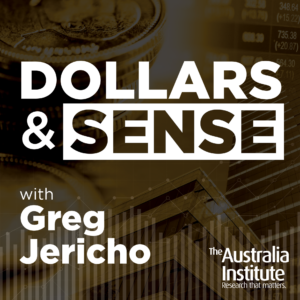Sorry BCA – the data shows businesses like investing in Victoria
Despite what the Business Council of Australia would wish you to believe, Victoria is one of the most popular places to invest in Australia.
Today the Business Council of Australia released its “Regulation Rumble 2024 report” which ranked Victoria as the worst state to do business. And yet when we examine the actual business investment figures from the Bureau of Statistics, it is clear private business investment in Victoria is actually growing more strongly in that state than almost anywhere else in Australia.
The discrepancy between what the BCA argues and what the data says is due to the reasons behind the BCA’s report. Notionally the report is designed to rank the states in order of places to do business. In reality, it is designed to pressure state governments to reduce taxes and regulations in order to increase the profits of companies.
This is made clear by the criteria – the BCA noted that it “examined planning systems, payroll taxes, property taxes and charges, retail trading hours, workers compensation premiums and licences to do business”. That is, anything that costs businesses is bad regardless of the impact it might have on the community through perhaps better services funded by state revenue. It concluded that South Australia was the best place to do business and that “this was largely driven by it having lower payroll taxes, lower property charges and less voluminous business licensing.”
The BCA has a very clever media strategy, and its report got wide coverage.
The AFR ran with “The report names Victoria as the worst state or territory to run a business, with its onerous regulations acting against growth and investment on many measures”. The Australian went with “Victoria ranks last for business amid state spending splurge”. The Herald Sun had “Victoria ranked worst state in Australia for business”. Even the ABC swallowed the story whole, running with “Victoria ranked worst for business as Labor debates brand damage in Albanese stronghold”.
After such a blizzard of stories you would think Victoria must be a wasteland of business investment, with companies and businesses fleeing the state for the friendlier climes of New South Wales or South Australia.
And yet the opposite is the case.
Rather than listen to the BCA, journalists would have done better to look at the data provided by the Bureau of Statistics.
In the 2023-24 financial year, new private business investment in Victoria grew 7.2% only behind the strong mining investment of Western Australia. Over the same period, private business investment in NSW grew just 4.8% while in South Australia (the supposed best place to do business) it fell 0.2%.
Clearly a one-year growth figure can involve some cherry-picking. And yet even when we examine the past two financial years, the picture is good for Victoria. Since 2021-22, Victoria’s private business investment has grown 17.9% – the fastest in the country.
Indeed over the period since December 2013 when the then Andrews government took office, business investment growth in Victoria has outpaced that of NSW by 61% to 49%.
If Victoria is such a bad place to do business, you would think businesses would be less willing to invest there!
The lesson is for journalists and other to stop listening to the BCA and its vested interests, and look at the data. The figures don’t lie.
Between the Lines Newsletter
The biggest stories and the best analysis from the team at the Australia Institute, delivered to your inbox every fortnight.
You might also like
Victoria really doesn’t need any new gas
Recently, we published a video showing a huge new gas drilling rig in Victoria, within sight of the 12 Apostles – a globally recognised tourist hotspot. As Dr Emma Shortis says in the video: “We are putting our coastlines at risk to extract gas we don’t even need. Australia already produces way more gas than
New analysis reveals Victoria produces more gas than it uses
New analysis by The Australia Institute reveals Victoria does not have a gas shortage, with the state producing more gas than it uses and consumption at its lowest level since the 1980s.
Is this growth…good?!
Rooftop solar and data centres are drivers of Australia’s economic growth, but do they really bring the same value to Australian society?


